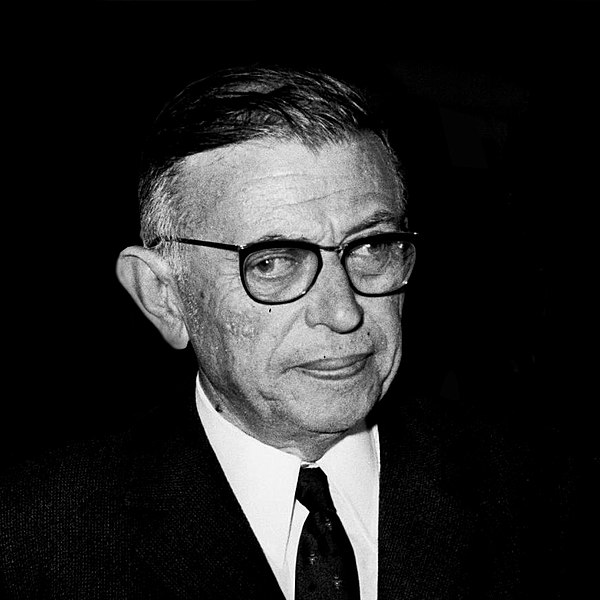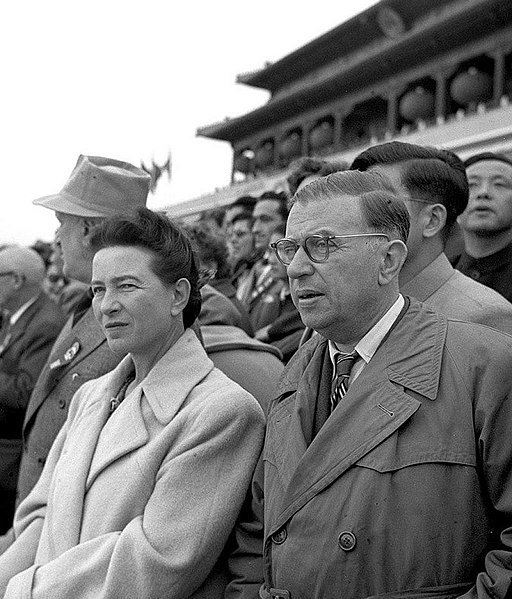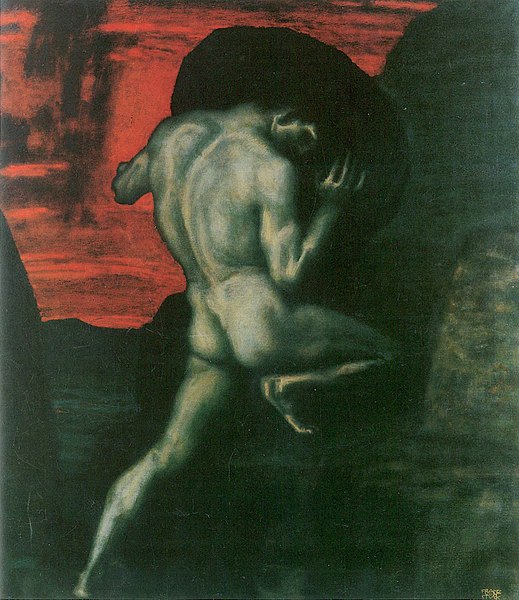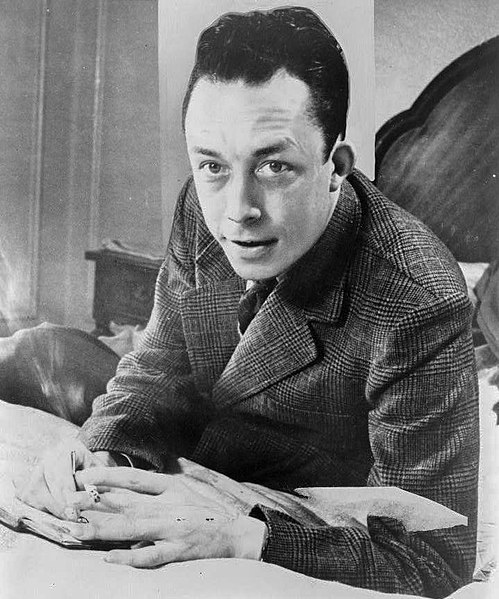Jean-Paul Charles Aymard Sartre was a French philosopher, playwright, novelist, screenwriter, political activist, biographer, and literary critic, considered a leading figure in 20th-century French philosophy and Marxism. Sartre was one of the key figures in the philosophy of existentialism. His work has influenced sociology, critical theory, post-colonial theory, and literary studies. He was awarded the 1964 Nobel Prize in Literature despite attempting to refuse it, saying that he always declined official honors and that "a writer should not allow himself to be turned into an institution."
Sartre in 1967
Simone de Beauvoir and Jean-Paul Sartre in Beijing, 1955
Sartre (third from left) and other French journalists visit General George C. Marshall in the Pentagon, 1945
Jean-Paul Sartre (middle) and Simone de Beauvoir (left) meeting with Che Guevara (right) in Cuba, 1960
Existentialism is a form of philosophical inquiry that explores the issue of human existence. Existentialist philosophers explore questions related to the meaning, purpose, and value of human existence. Common concepts in existentialist thought include existential crisis, dread, and anxiety in the face of an absurd world and free will, as well as authenticity, courage, and virtue.
Sisyphus, the symbol of the absurdity of existence, painting by Franz Stuck (1920)
French philosophers Jean-Paul Sartre and Simone de Beauvoir
French philosopher, novelist, and playwright Albert Camus
Adolphe Menjou (left) and Kirk Douglas (right) in Paths of Glory (1957)








